improving extractives governance
PNGEITI Report Releases
The EITI holds all implementing countries to the same global standard. Through Validation, the EITI’s quality assurance mechanism, implementing countries are assessed on their ability to meet the provisions of the EITI Standard.

PNGEITI praises open dialogue to re-open Porgera Mine
The PNG Extractive Industries Transparency Initiative (PNGEITI) has praised the open stakeholder dialogue culminating in reaching consensus to re-open the Porgera Mine in Enga Province. Parties in April this year sanctioned a “Framework Agreement for the New Porgera Project” which spells out the roadmap to reopen the mine. Mark Bristow, CEO and President of Barrick Niugini Ltd Gold last week explained key elements of “Framework Agreement for the New Porgera Project” at a public forum at the Piam Oval in Porgera witnessed by PNG Prime Minister James Marape, landowners and other leaders. In the new agreement, PNG stakeholders will together own a 51 % equity stake in the mine while Barrick Niugini Limited (BNL), a joint venture company in which Barrick and Zijin Mining Group each own 50% will hold 49 % which BNL will remain the mine operator. At the end of the first ten year period, the PNG stakeholders will have the option to purchase BNL’s 49 %. PNGEITI Head of Secretariat Lucas Alkan commented that the open discussion throughout the negotiation process on the part of the mine operating lead, government and landowners has culminated in this agreement signing by all parties. “We at the PNGEITI congratulate the Government and the project lead BNL and other stakeholders for reaching a consensus decision to reopen the mine. “Porgera has been an economic powerhouse for many years and people in the country have been waiting for the outcome. “We commend the Prime Minister Hon. James Marape, the President and CEO of BNL Mr. Mark Bristow for the leadership in ensuring that the negotiations were done in the transparent and open manner. “PNG Extractive Industries Transparency Initiative highly encourages such openness in the negotiating process for resources benefits and importantly the responsibilities that each stakeholder must take to ensure smooth flow of proceeds. “We look forward to working with the Government and the project operator in the areas of transparency and accountability to help derive best value for all stakeholders. PNGEITI’s commitment to reporting on developments in the mining and petroleum space is becoming stronger with new reporting dimensions taking shape as we making progress in promoting transparency and accountability in the PNG mining and petroleum industry” Mr. Alkan said.

EITI implementation in Papua New Guinea helps shape policy in the PNG mining and petroleum sector
The publication of the PNG Extractive Industries Transparency Initiative reports are meaningless if they do not give rise to critical policy debates for a robust mining and petroleum sector in Papua New Guinea, an official says. Head of PNGEITI National Secretariat Mr. Lucas Alkan told leaders at the 36th Australia Papua New Guinea Business Forum on Wednesday that EITI work in PNG is progressively helping to shape public policy discussions through EITI report recommendations, and open discussions within the PNGEITI Multi Stakeholder Group (MSG). Papua New Guinea to date has published a total of seven (7) EITI country reports since the PNG Government signed up to join other 50 plus mineral resource rich countries in 2014 to implement the EITI Global best practice Standard. To promote transparent and accountable conduct of business in the mining and petroleum industry the core function of EITI implementation is the publication of annual EITI country reports consistent with the requirements of the EITI Global Standard. Mr. Alkan said those reports must form part of policy discourse in mining and petroleum sectors of the economy as opposed to collecting dust in the shelves. “Producing EITI reports are meaningless if these reports do not give rise to critical policy and legislative reforms for better management of the sector, “he said. Mr. Alkan said important progress had been made since PNG’s first EITI report in 2015, providing greater transparency over revenue received by the government from the country’s mining and oil and gas industry. He said the PNG Government and resource owners receive maximum resource project benefits, with that EITI reporting process identifies revenue leakages to improve corruption perception which would in turn boost investor confidence. “To improve the country’s investment climate, we have to be transparent in all forms of payments, starting with the negotiation process for development projects to how licenses are issued. “EITI is a platform that enables all stakeholders to work collaboratively and build trust to realise PNG’s vision for resources development,” Mr. Alkan added. “Some of the improvements and reforms arising from the work of EITI in PNG are that EITI;• has been complementing other Government initiatives like the Open Government Partnership (OGP) and the Independent Commission Against Corruption Law (ICAC);• through its first report, ensured that the Income Tax Act was amended to remove secrecy provisions in the Act to enable the IRC to disclose tax revenue data for EITI reports.• provisions have been included in project MOAs and Agreements on benefits sharing arrangements for contract transparency;• establishes a platform for better collaboration and open discussions between different stakeholders to build trust;• ensures a comprehensive report with available data covering the extractive sector that is now used as reference in debates, which is not the same some years back;• Report outcomes have influenced the Government to embark on reforming policy and resource laws to strengthen government systems and to ensure fair share from the benefits derived from resource developments;• is now making progress in comprehensively reporting at sub-national levels of government, beneficial ownership disclosure, and increase transparency in State Owned Entities.• has forced the government to disclose quasi-fiscal data and taken steps to address opaque nature of some tax incentives such as the Infrastructure Tax Credits.• report recommendations have pushed the PNGEITI Secretariat and the Auditor General to work together to improve the quality of the financial data in the EITI reports.“In addition, a National Policy Framework on Transparency and Accountability was approved by Cabinet in 2018,” he said. Mr. Alkan said among the achievements made so far in EITI implementation in the country, the National Policy Framework on Transparency and Accountability has set the basis for the creation of EITI PNG as an independent administrative body to sustain its operation and the draft law is now being finalised.

PNG EXTRACTIVE INDUSTRIES TRANSPARENCY INITIATIVE ANNUAL PROGRESS REPORT 2021
FORWARD The year 2021 saw significant improvement in the management of the Coronavirus Outbreak in the country and particularly in the implementation of the EITI Standard. As with many EITI implementing countries around the globe, Papua New Guinea (PNG) experienced disruptions in implementing the EITI Standard due to the pandemic lockdowns and restrictions imposed by the Government. With more relaxed measures enforced through the National Executive Council (NEC) Decisions, the PNGEITI Multi-Stakeholder Group (MSG) sought to progress outstanding activities carried over from the 2020 Annual Work Plan due to the Covid -19 pandemic shutdowns and restrictions. Despite the adverse impacts of the Covid-19 Lucas Alkan Secretariat , Head of PNGEITI National Pandemic that delayed many planned activities and culminating in wider negative socioeconomic consequences for the country, the MSG remains steadfast in maintaining its position to strengthen good governance in the extractives sector through the implementation of the EITI Global Standard. Evident in our long-lasting shared vision is the continual support by the PNG Government in supporting the program with recurrent funding through the national budget; which had resulted in the publication of seven (7) PNGEITI Country Reports consecutively that covered the financial years 2013 to 2019. Furthermore, the publication of various other studies including; the subnational payments and transfers, the State-owned Enterprises, the Beneficial Ownership Disclosure, and the Contract Transparency (Disclosure) all aimed at improving the reporting and disclosure in the country’s extractives sector. This report fulfils the EITI Standard’s mandatory requirement (Requirement 7.4) relating to the Review of the outcomes and impact of EITI implementation through the production of an Annual PNGEITI Progress Report (APR). The APR is intended to highlight the outcomes and impacts of EITI implementation by member countries in a particular fiscal year. The PNGEITI MSG has fulfilled this requirement with the production of eight APR’s covering the fiscal years 2014 to 2021, with the diligent facilitation by the National Secretariat. Key highlights in the year 2021 include; the staging of the PNGEITI Regional Consultations on the draft legislation (PNGEITI Commission Bill) , PNGEITI’s participation in the Mining Development Forums and the MoA’s and the preparation of the PNG Validation in 2022. A setback for the year was the delayed publishing of the 2019 PNGEITI Report due to the Covid19 related disturbances. The combined efforts of the various MSG Technical Working Groups (TWG) resulted in the publication of other important reports that included; the delivery of the SOE scoping study, the Beneficial Ownership Disclosure Report and the Contract Transparency (disclosure) Report. With the emphasis placed on establishing the PNGEITI as a Statutory Commission, the National Secretariat and the MSG Technical Working Group conducted consultations in the four regions of the country. The outcome of this exercise was the successful completion of the draft Bill. The next phase will be to ensure that the regional views and feedback collected are considered and the draft Bill finalised for submission to Parliament in 2022. 5 The increased partnership between PNGEITI and the mining stakeholders resulted in the EITI provision being included in the Simberi Mining Project Draft MoA. The other projects which have included EITI clauses are the K92 Gold Mining Project in the Eastern Highlands Province and the Woodlark Gold Mining Project in the Milne Bay Province. In response to the negative impact brought about by the Covid-19 Pandemic on EITI implementing countries, the EITI International allowed flexibility in the reporting requirements for member countries to cope with the impact of the Covid 19 pandemic. The PNGEITI MSG requested for a series of extensions to the Validation which is now set to commence in April 2022. In addition to the above programs, the PNGEITI annual recurrent programs were implemented with technical support from international development partners such as the World Bank, the Japanese International Cooperation Agency (JICA) Technical Cooperation Program and industry companies’ support. The PNGEITI-JICA Project delivered substantive output which resulted in increased data quality in the FY2019 PNGEITI Report as well as enhancing collaboration between the Department of Petroleum and the MSG. The two and a half year project which was scheduled to conclude by the end of 2020 ended in early 2022 instead due to the Covid-19 restrictions and shutdowns. Further, the 2021 PNGEITI communications programs achieved satisfactory results in 2020 as a result of maintaining its presence in the mainstream media promoting the 2018 and 2019 PNGEITI Reports findings. The various online discussions and engagement events proved invaluable for various audiences towards the end of 2021. The limited outreach activities conducted made impact in terms of stimulating dialogue and collaboration amongst local civil society groups. It also enabled State regulators and academics, both domestic and international to address pertinent issues related to extractive sector governance in PNG. Administratively, the regular MSG quarterly meetings were affected due to the Covid-19 pandemic shutdowns and social distancing measures imposed by the Government. Despite this challenge, the National Secretariat supported the MSG to deliver key and priority activities in the 2021 Annual Work Plan. The various MSG Technical Working Groups were able to attend meetings, and the consultations and workshops. The recent emphasis on gender balance in the 2019 EITI Standard is captured as a recurrent item within MSG annual work plan going beyond 2021. Data from the MSG meeting minutes indicated a need to strengthen female participation however, despite gender disparity, female voting members played a significant role in enhancing the EITI implementation from years 2012- 2021. I hope this report serves its purpose of informing the progress made in implementing the EITI Standard in Papua New Guinea. I hereby present this annual report for the financial year 2021 for your utmost interest and consideration. PNGEITI 2021 Annual Progress Report Download Preview

PNGEITI Congratulates Richard Kassman as new President of Chamber
The PNG Extractive Industry Transparency Initiative (PNGEITI) has congratulated Richard Kassman on his appointment recently as President of the Papua New Guinea Chamber of Mines and Petroleum. He recently replaced Gerea Aopi who has been at the helm of the position with distinction. Richard Kassman is the Director Corporate Affairs, Total E&P PNG Limited- an active member of the PNGEITI Multi Stakeholder Group (MSG) and he was vice president of the Chamber during the time of his appointment. Mr. Kassman represents Total PNG Ltd in the PNGEITI MSG which oversees the implementation of the Global Extractive Industries Transparency Initiative (EITI) in Papua New Guinea. “As we all know Mr. Kassman is a dedicated professional with active engagement in both the Government and private sector in Papua New Guinea with deep commitment with in those various roles he plays,” PNGEITI Head of National Secretariat Mr. Lucas Alkan said. “His insights and contributions to the advancement of EITI reporting in this country has resonated with great value and the PNGEITI MSG is privileged to have him on board. “At this juncture, we acknowledge his invaluable commitment and contribution over the years since PNG commenced implementing the EITI 7 years ago. Now as elected President of the PNG Chamber of Mines and Petroleum, we look forward to a heighted working relation with regards to the role that the industry plays as the key stakeholder in implementing and maintaining PNG’s position as an EITI affiliated member country. Mr. Alkan said Kassman’s experience would greatly enhance the work of the PNG Chamber of Mines and Petroleum in representing EITI in PNG and would give prominence to the cause by building on the momentum of the program that has produced several financial year reports from the extractive sector.

PNGEITI celebrates the International Women’s Day
Today, the 8th of March, 2021, the Papua New Guinea Extractive Industries Transparency Initiative (PNGEITI) joins the global world in celebrating the International Women’s Day (IWD). In line with the theme for this year IWD “Women in Leadership: Achieving an equal future in a COVID-19 world” PNGEITI recognises the different roles Papua New Guinea women play in the extractive mining, oil and gas sector. By highlighting our women’s contribution in the sector, PNGEITI is doing a week-long photo campaign on its various social media sites. It is also timely as it’s been two years since the EITI International Board approved the 2019 EITI Standard which includes specific requirements on ‘Gender’ reporting. The soon-to-be published PNGEITI Report 2019 for the first time discloses employment data of a few reporting entities in PNG disaggregated by Gender. The present data tells us that women are disproportionately represented in the sector. It is no secret that the extractive industries globally are male dominated, however, there is no doubt that women do contribute to the sector, and increasingly so. In this changing world, women are now taking up roles that were once male dominated. For PNG women, there is no exception, they have portrayed this through their contribution whether it be on or off site, in the offices, field or in the communities. The roles many hold to this date include Warehouse Manager, Security Coordinator, Mine Geologist, HR Officer, Police Officer to name a few. PNGEITI will showcase some of these women in these roles in the photo campaign this week. There is still a long way to go to achieve gender equity in the sector. But today, PNGEITI salutes these amazing women! Happy International Women’s Day.

Terms of Reference for PNGEITI FY2019 Report preparation
Final-TOR-for-FY2019-PNGEITI-Report Download Preview

